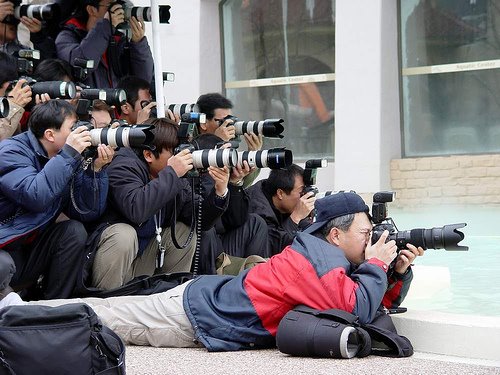As small business owners, everyone always wants to get a piece of the public relations pie. As much as possible, we want to get media exposure for our businesses, services, and products because this exposure provides big benefits. As easy as it may sound, getting that spot in any media takes a little-bit of know-how; and one of the main challenges that we have to face in getting that so-sought-after media spot is getting the attention of a journalist.
Journalists are the people who make interesting stories and angles for a certain type of media. They are the ones who create the news on print. They are the ones who post on expert websites, and they are the ones who provide radio and TV coverage for a story.
In short, journalists are our gatekeepers to the media world, and here are some tips on how to get their attention to cover your story.
1. Target Your Media
Nothing annoys a journalist more than having irrelevant information sent to them. There is such a practice called ‘spray and pray’ wherein you just send your media pitches to whoever journalist’s email or answering machine service. The only thing that this approach does is find you a spot on the journalist’s junk mail folder or phone blacklist.
In order to target your media more effectively, select the three types of media you’d like to get into this quarter. Isolate these media and look for the journalists that cover your target niche. Try to get as much information as you can on your target journalists.
2. Create your News Hook
Once you’ve had your shortlist, it’s now time to create your news hook. A news hook is something that’s catchy and interesting about your business’ products or services. They can be stories, testimonials, videos, events, or anything under the sun that may want to make a journalist cover as an interesting story for his or her audience.
There are some guidelines though in creating your news hook. The first considerations are that an news hook should have relevance and proximity. A journalist who covers crime scenes or political happenings would likely not entertain your news hook (unless, of course, it’s related to crime and politics). Always remember your target journalists and create a news hook that is relevant to them. Moreover, a journalist from another part of the country would not be interested in covering an event that will be held at your local convention center.
Another consideration is immediacy. When creating news hooks, make sure that it’s very recent; like give it a range of about two days, past or future. No journalist wants to do a story on something that took place a few weeks ago. Also expect the same thing with events that haven’t happened yet.
3. Contact the Journalist Directly
Once you have the news hook, contact the journalist directly. Introduce yourself then give your quick media pitch. Don’t be afraid to cold-sell your news hook. Most often than not, someone doesn’t get the chance to be interviewed the first time around. The key is to just keep on trying.
Furthermore, even if a journalist says ‘No’ to your pitch, you can end the call by asking, “Is there anything else I can help you with?” Most of the time journalists get surprised and ask if you know someone who can help him or her out with a story. Providing help can make you a relevant source. You may not get your story that time, but they will remember you favorably. Just remember that with a little bit of perseverance, an a little know-how, you will eventually get that coveted media spot.

